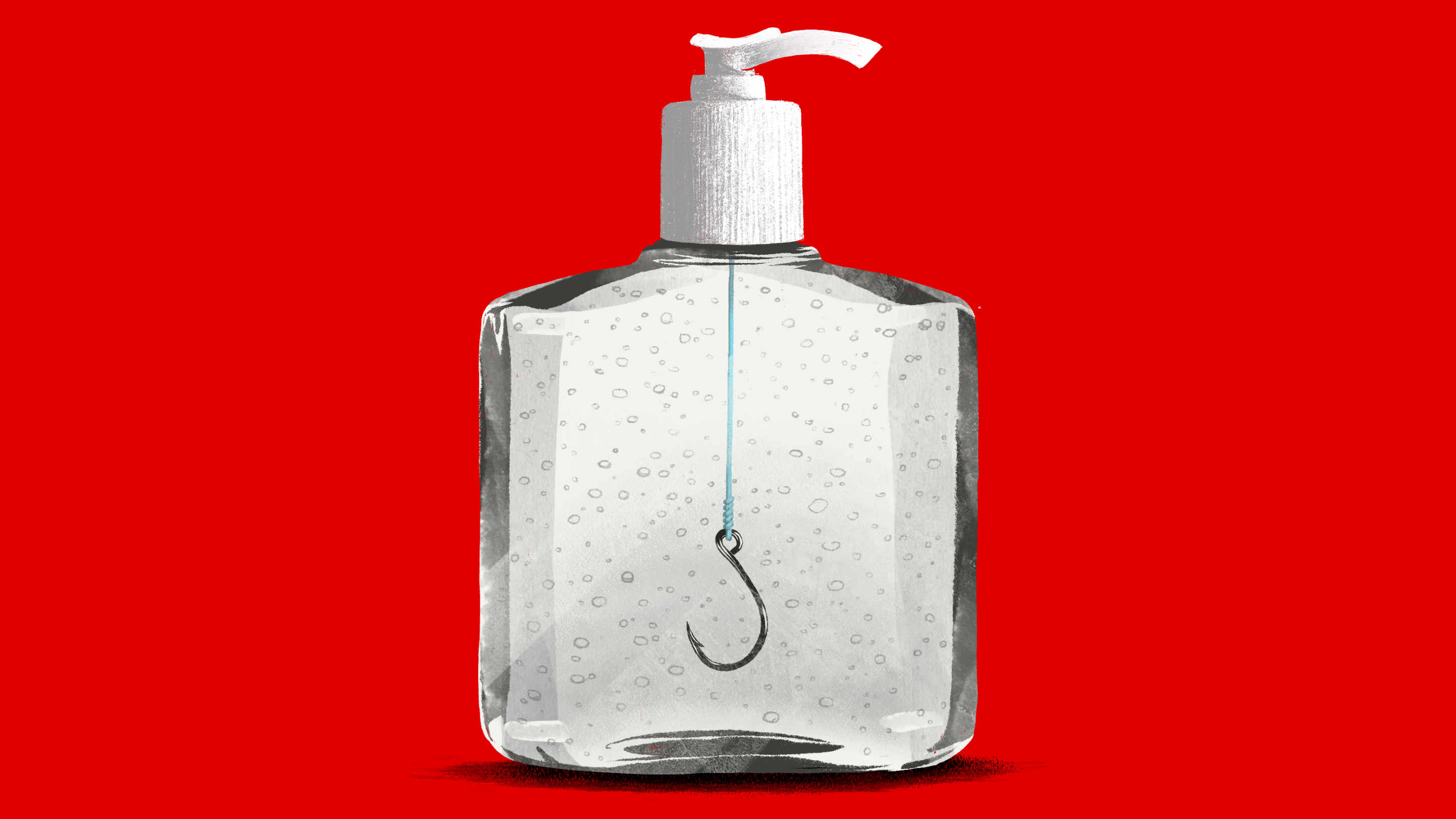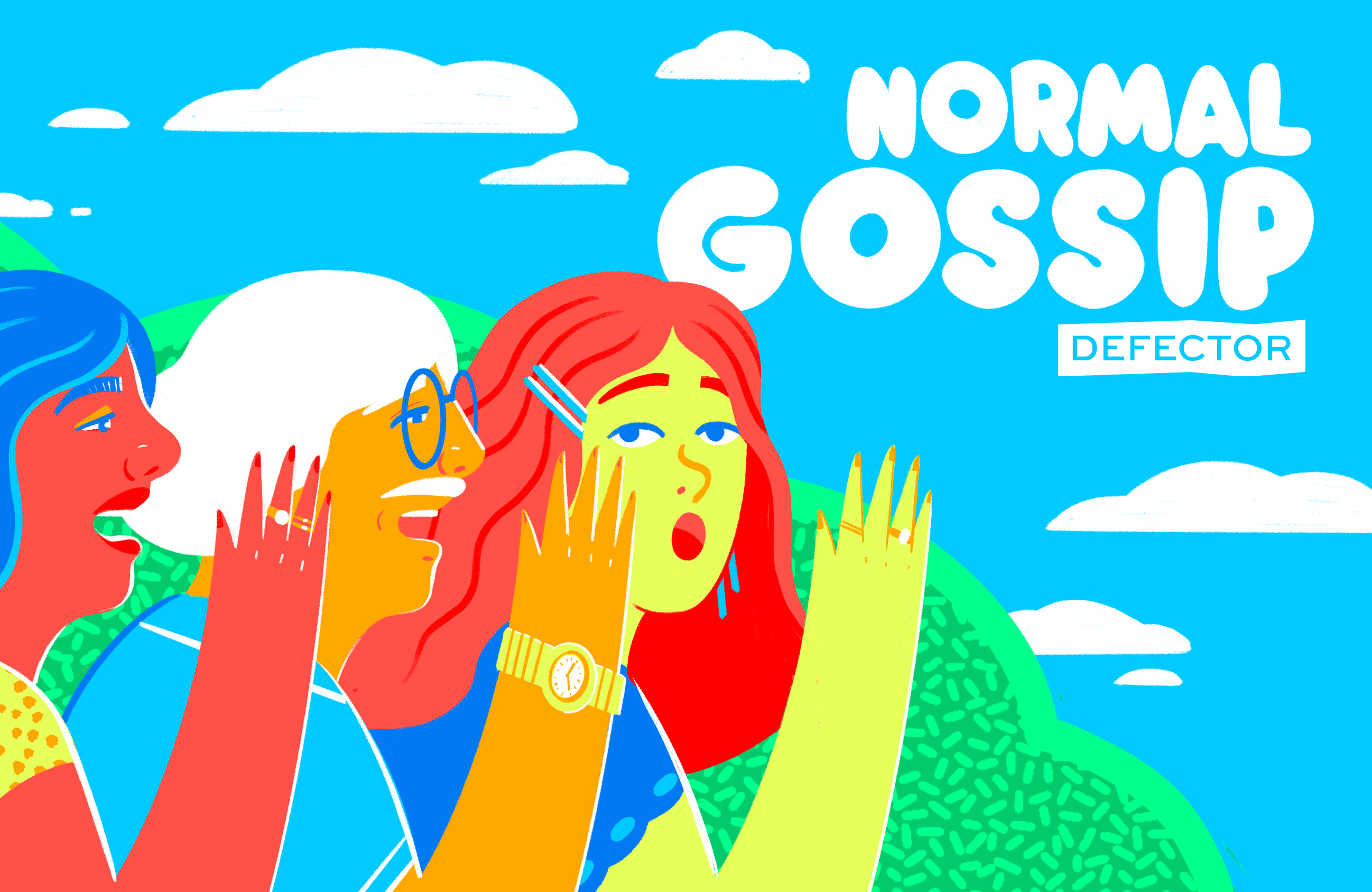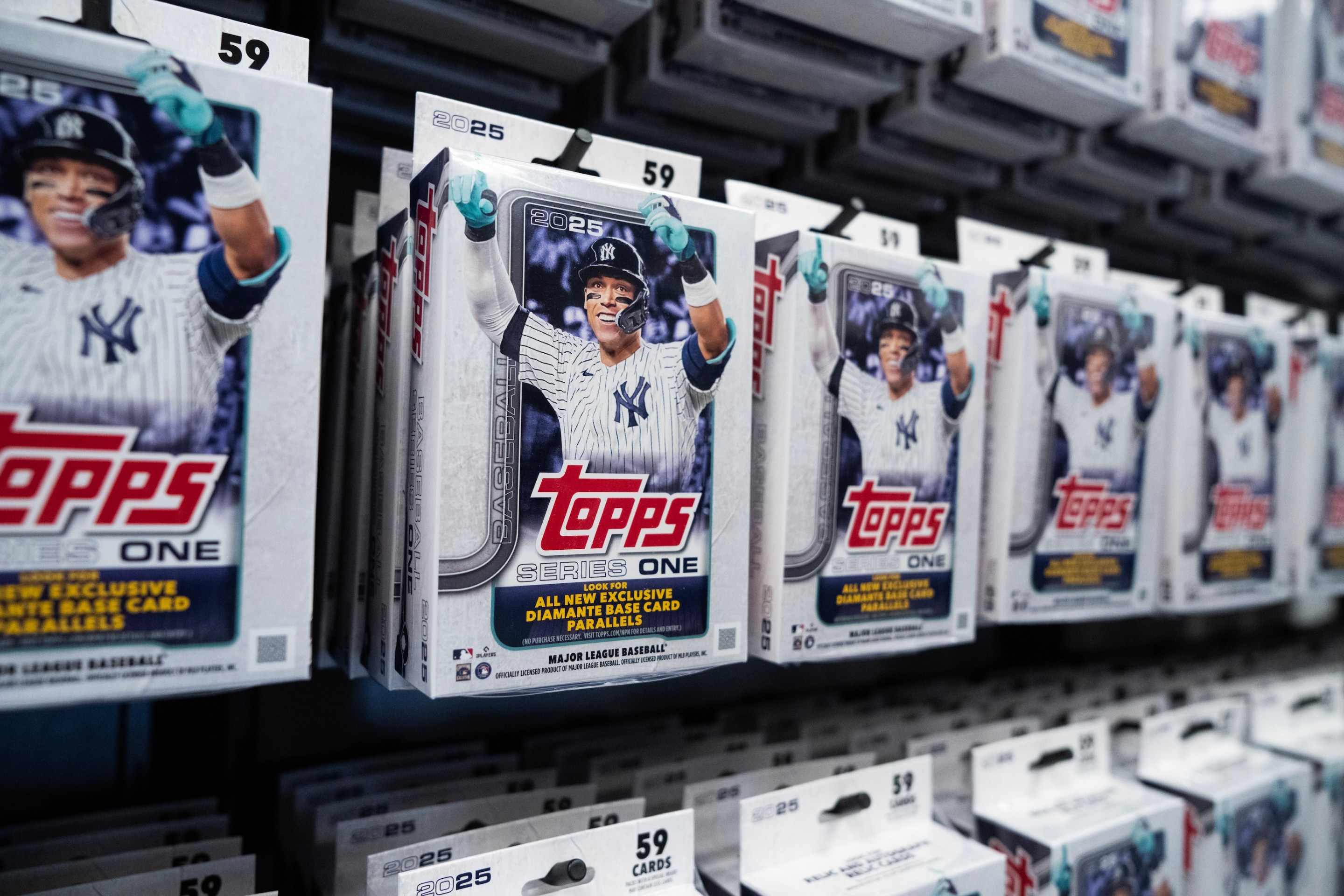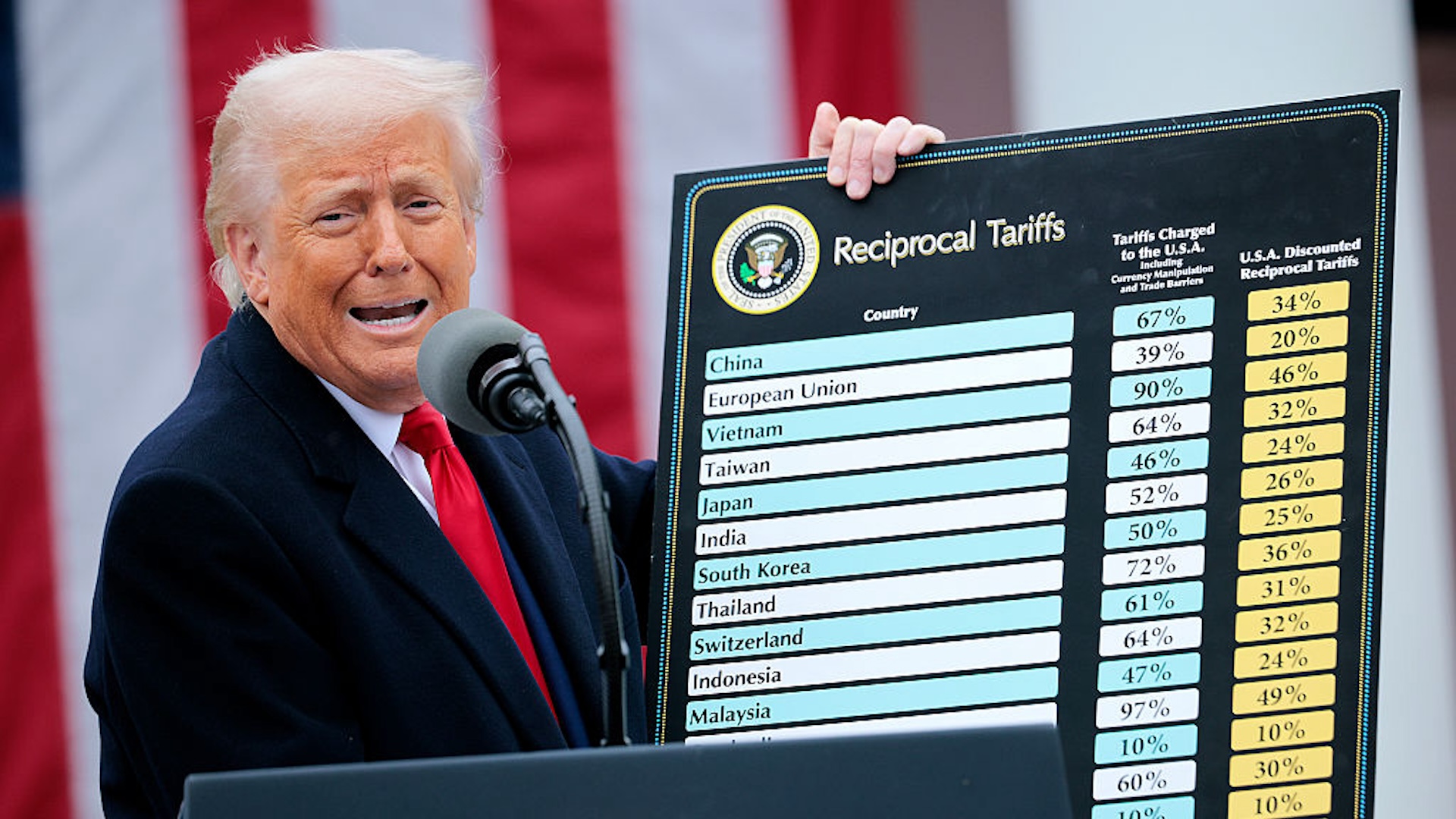In early 2020, Jay Avigdor, a fast-talking small-time financier from Cedarhurst, New York, started facing revenue issues with his firm. Then one of the employees—this guy Mikey—shared a tip. It just was a little scrap of something Mikey had heard, secondhand, from his brother-in-law. “There’s this group chat of PPE people,” Avigdor remembers Mikey telling him. “This buying and selling group.”
Avigdor quickly learned that there were, in fact, dozens of chat groups selling PPE, or personal protective equipment, to businesses and medical facilities. They had bluntly effective names: “PPE Buy and Sell,” “Virus Group deals 1,” “Corona Supplies 4.” He figured out how it worked. (It wasn’t very complicated.) Most of the time, someone in one of the chats offered an item and a quantity. Maybe a few hundred cases of N95 masks. Someone else said they knew a procurer at a small clinic that desperately needed those masks. You bought from the latter and sold to the former. You didn’t need to be the actual producer of the product to make money. You didn’t even need to take physical possession of the product.
Avigdor already happened to know people who needed PPE. So he bought some basics: gloves, masks, and sanitizer. He flipped it all quickly. Six months after he began, there was not “a point in time that I haven’t had a message from the chats,” he said. “I stay up till 2 a.m., 3 a.m. to answer. I’m on all of them. It’s always booming!”
In March 2020, with the pandemic causing PPE shortages both nationwide and in hotspots like New York, this WhatsApp market became an alternative resource for those unable to purchase directly from traditional medical suppliers who were suddenly overrun by demand. A year later, PPE industry insiders say the traditional supply chains have only partially bounced back—and that the WhatsApp markets have persevered.
Over the summer of 2020, protective equipment shortages meant a range of medical professionals—from cancer specialists to neurologists—were unable to safely provide services. In some cases those shortages have held firm: The charity Get Us PPE told me that from November 2020 to January 2021, incoming monthly requests have gone up nearly fourfold, before dropping again in February. The majority of the requests come from small facilities, as opposed to large hospital groups with hefty procurement operations.
Dr. Shikha Gupta, the Executive Director of Get Us PPE, says, “This has turned into an equity issue. Well-funded facilities are not having to turn to alternative networks to find PPE.” But places like “homeless shelters, nursing homes, dentists, and group homes” are struggling. Adds Gupta, “you hear misleading stories about PPE being readily available but that’s simply not the case. PPE is readily available for the haves but it certainly isn’t for the have nots.”
Meanwhile, the WhatsApp chat groups flourish in a confusing legal space. On a state level, attorneys general are operating under their respective price gouging laws, which vary greatly. On a federal level, the Department of Justice created a COVID-19 Hoarding and Price Gouging Task Force in part to investigate major violations of the Korean War-era Defense Production Act.
In New York, the relevant statute outlaws the selling of goods at “an unconscionably excessive price.” Avigdor says he keeps his price inflation to between eight to 10 percent, which he believes puts him safely within the right side of the law. “Per my and my attorney’s understanding, I’m kosher,” he said.
Marissa Koblitz Kingman is a criminal defense lawyer specializing in white collar crime at the firm Fox Rothschild LLP. “Unconscionable price,” she says. “What the hell does that mean?” Kingman and her colleagues compiled a survey of price gouging statutes in all 50 states. She says the 10 percent mark is indeed a common legal cut-off. But, she stresses, the enforcement system is chaotic. “I had a guy who sold hand sanitizer at a garage sale” in New Jersey, she says, “and [the AG] is going after him.”
Other buyers and sellers are not as confident as Avigdor in the legality of all of this, and prefer to stay anonymous on the chat groups and in conversations with reporters. The market as a whole is not well-monitored; the only realistic way a broker would become known to the authorities is if a complaint was made through a hotline or complaint form. Effectively, says Kingman, attorneys general are “working off tips.”
In March 2020 a broker named Baruch Feldheim was arrested by the FBI, and this murky market briefly came to light: Feldheim was arrested after one of his clients, Dr. Alexander Salerno, mentioned him during an interview about the pandemic on NBC Nightly News. Feldheim’s encounter was darkly comic: As the FBI agents approached him outside his Brooklyn home, they say, he coughed on them, claiming he was sick with coronavirus. For that he was charged with assaulting a federal agent, on top of making false statements to law enforcement about the sale of protective equipment.
I wanted to know more about this brazen profiteer, Baruch Feldheim. I read that Feldheim was soliciting clients via a WhatsApp chat called “Virus2020!” What was this world? Who were these people? For months, I spoke to broker after broker and read message after message. I deciphered their strange lingo, traced their odd lines of thought, followed their byzantinely structured inside jokes. To this day I still don’t know: How much was illusory? Who was really making money and who was just bored and home and lonely? I asked brokers to share more WhatsApp content. I couldn’t get enough.
The thing is, if you spend enough time wading through the chats, everything becomes removed from reality. I largely stopped thinking about any of it in moral terms. Like Reddit fan communities sussing out Kubrick theories, or the particularities of the expanded universe of a popular college football podcast, it became just another fucked-up subculture.
When asked what legal body is governing his business, a broker named Eli Flax says, “No idea. Haven’t got a clue.”
Flax, formerly a life insurance salesman, lost his job in early 2020. He got started in PPE by ordering 3,000 disposable 3-ply surgical masks and selling them, a little under $1 a mask, to people in his immediate WhatsApp contact list. The masks went faster than he dared imagine. “Sales,” he says, “don’t normally work like this.”
Based in London, Flax only sells PPE supplies in the US. “The trade is wild and it’s big and it's fast and it's profitable,” he says. “I have not been to America for two years but I’m making my business sitting on my couch in London [texting] in WhatsApp groups.” His partners in the U.S. include one furniture salesman, and one fine china salesman; he also partners with a family member, who lives in the States, and who has a U.S. bank account to more quickly facilitate transactions. Like many WhatsApp brokers, Flax works with fellow middle-men, all of them carving out their own niches in the space. Someone might have a lead on a delivery of nitrile gloves coming in from, say, Malaysia; someone might know a clinic in, say, Pennsylvania desperately in need of gloves. “There are days where I can make $200,000,” he says. “Two days ago I made $46. There’s no way of controlling it.”
On the morning of our interview, Flax says he’d located 10,000 N95 masks, then immediately moved them to one of his regular customers. He was also brokering PPE purchases for a hospital in Texas and a prison department in California. “In England, there’s so much bureaucracy, it’s impossible. But American institutions—hospitals, police departments, federal government bodies—will buy from a schmuck like me. They will put a half a million dollars in my account.”
Avigdor calls the fluctuations of the WhatsApp markets “like a Coney Island roller coaster on a bad, bad, bad day.” He explains it’s all about the fine margins. Someone buys thousands of masks for 45 cents each, and sells them for 55 cents each. The price spikes are inevitable as the same product is flipped again and again.
At any given time, Avigdor says, one product rises in demand above all others. There’s no clear reason as to why; it could be a byproduct of the exigencies of a confused market and a persistent pandemic. “Medical exam-grade latex powder-free gloves,” he said in the summer. “That’s the hot item right now.” (According to Get Us PPE, at the end of 2020, a pair of industry standard Malaysian-made gloves were going for six times their pre-pandemic asking price.)
In screenshots shared from participants in the WhatsApp chats, the conversations are urgent and full of insider terminology. Similar communities are active on LinkedIn and Facebook. On WhatsApp, which comes with the added benefit of end-to-end encryption, the brokers have an insular style. They say they are eager to move anything and everything PPE related: masks, gloves, isolation gowns, sneeze guards, thermometers, face shields, wipes. They often offer or request astoundingly large quantities, and speak in jumbled jargon recognizable only to medical supplier insiders.
“100k kn95 fda on the ‘Authorized Imported, Non-NIOSH Approved Respirators Manufactured in China’ DM for price,” reads one.
NIOSH is the CDC’s National Institute for Occupational Safety and Health. This seller is explaining his 100,000 KN95 masks have the approval of the FDA, but not NIOSH.
“Guys i got 3ply .73 or best offer.”
That’s 3-ply masks being offered at 73 cents a mask. The broker goes on to claim, “I got 500mil in stock.”
These chats have also developed their own insider terminology. “LTB” stands for “looking to buy.” “OTG” stands for “on the ground,” which means the product has already been manufactured and is sitting in a warehouse somewhere. “POL” is “proof of life,” meaning a seller must have photos or video or certifications to prove they have the items. “POF” is “proof of funds,” any documentation, sometimes as simple as a screenshot of a bank account, that proves you have money.
Brokers say one of the biggest issues is figuring out who really has access to PPE, and who’s only posing as if they do in hopes of making connections to people who have access to money. Warnings of people to avoid are common in the community. “Anyone here that has done business with my partners and I know that we are honest, transparent & direct buyers/sellers with no shtick,” one person wrote, before relaying a pathos-filled tale about $115,000 in escrow and 80,000 missing surgical gowns. “I’m sorry for sharing bad news and maybe even causing anxiety and suspicion within the circles. We had done research on the family of the supplier and it breaks my heart to share this info.”
In one WhatsApp market exchange, someone offers a polite preamble: “Hi every1.” Immediately, a response comes: “This group is not for chatting. :)” A broker sends official-looking paperwork, with an FDA seal, and another broker accuses him of attempted fraud: “Get your papers in order. Do you even know what you’re selling here?” Yiddish is common.
A broker in New York State says she’s constantly bombarded from messages offering shady deals, and “I don’t even like those people. As a human being who has an incredible reputation as a yasher woman—that’s Hebrew for “honest” or “straight-forward”—“I will never risk my reputation for money.” She tells me she only makes modest sums; she tells me about a delivery she orchestrated for two healthcare agencies to get “product at a really fair price. And I’m personally packing it and delivering it! Well, actually, my son is going to do that. Unbeknownst to him.” From her point of view, what she’s doing is filling a void in the market and, therefore, providing a service. “I do a great job, I must say, I do, and I help.”
This was something I heard more than once: this idea that the brokers were both making money and, by providing protective equipment, helping people in need. There are correct ways to move in the scene: In early 2021, a spreadsheet made the rounds listing names, emails, phone numbers, and business names of brokers with red flags. The spreadsheet read, “A group of 100+ admins from WhatsApp, FB, LinkedIn, and [T]elegram have come together to exchange info and intel from our members as well as law enforcement to share suspicious traders.” While speaking to me, no one ever self-identified as a profiteer.
Above any genuine altruistic motivation, though, I got the sense the New York State broker was doing all this because it was amusing. Once, she says, she was briefly kicked off of a group: She had poked fun at someone grandly calling themselves the Virus Depot, without realizing he was the administrator of the group. She told him, “dude, pardon my expression—you have to grow a pair.”
The Virus Depot since changed the setting on his group chat so only he can share messages. This broker, a former nursing home administrator, will share only his first name, Tali. He says the Virus Depot has become a cherished alter-ego. “I love it,” he says. “It’s very catchy.” It also helps him avoid estranged family members with whom he has pre-existing grievances. “I’m on chats with my ex-brother in law, and he’s trying to ruin my [family’s] life, and he doesn’t know who I am!”
A health care professional in New Jersey says that, after his payment for PPE went through, the WhatsApp broker began making excuses: We’re slightly delayed and UPS returned the shipment and, oh, actually a storm destroyed the products. The whole time the New Jersey buyer kept asking for, and being refused, tracking information. “It seems totally unclear what’s illegal, and what’s not,” he says. “We’re all kind of up in the air, not knowing what to do.” The products eventually arrived, weeks later than advertised. The whole experience was “brutal,” the New Jersey buyer says, laughing. “Brutal.”
Chris Hosmer, co-founder of the mask company AirPop, learned of the WhatsApp market while creating a product authentication process for the PPE charity Last Mile. Hosmer helped Last Mile sort through the bureaucratic maze, charting out which regulatory bodies oversee which part of the protective equipment certification process. He came to believe most Whatsapp brokers “were not intentionally deceptive or fraudulent, just lazy or uninformed.” Regardless of their intentions, ultimately, he contends, their business practices led to “procurement teams end[ing] up with counterfeit products.” And even when the product was authentic, Hosmer says, it was “unconscionably priced. Lives were on the line.”
Dr. Alexander Salerno is the CEO of Salerno Medical Associates, a private practice with three locations in New Jersey. His provider, McKesson Medical-Surgical, started to slow to fulfill his orders in February 2021. Soon after he met Baruch Feldheim—the profiteer busted by the FBI—at a converted auto body shop in Irvington, New Jersey. “It was like being a kid with an endless appetite in a candy store,” Salerno says. “He had everything from hand sanitizers to operating room surgical gowns. It was professionally packaged, legit, verified, certified. This wasn’t fake Guccis.”
Salerno describes Feldheim as a “clean cut” and terse Hasidic man. Attempting to negotiate on prices, Salerno was quietly rebuffed: Feldheim said he had to ask his boss. “I’m thinking to myself, ‘You don’t have a boss. This is your gig!’ Maybe that’s how he justified the guilt. There was really no moral conversation you could have.” As far as small talk, Feldheim just told Salerno he couldn’t guarantee the prices would be the same at the end of the day and that maybe, “I should consider buying more,” Salerno says.
Salerno wanted to protect his employees and didn’t see another way other than to pay up. Silently, Salerno was horrified: “You’re making a markup [at the expense] of literally the life and wellbeing of healthcare providers who are fighting a war. You need to look at your own moral compass. You’re price gouging about equipment that could literally save someone’s life, someone that could take care of you and your parents and your kids! I’m wondering if he would be charging his own internist these type of prices.”
On that one visit Salerno agreed to buy $12,000 worth of PPE from Feldheim, at what prosecutors estimated was a 700 percent markup. He then spoke to NBC Nightly News about his dealings. “Literally the next morning the FBI calls my office. That was a Thursday. And that Sunday, they arrested my broker.” Salerno read in the news that the FBI had confiscated Feldheim’s PPE stock. For a few days, he held out hope that was a good sign. “They confiscated 100,000 N95 masks—I don’t know where they went! They didn’t go to myself or other community physicians! I mean, I don’t know what’s more illegal, [Feldheim] charging me a 700 percent markup, or me not being able to get anything” from the federal government. According to reports, Feldheim’s inventory was bought by the federal government and delivered to agencies in New Jersey and New York.
If the federal government had handled things correctly, there would have been no PPE procurement or production issues during the pandemic—because the federal Strategic National Stockpile would’ve simply had enough supplies. Instead, according to recent New York Times reporting, over the last decade the government stockpile has used roughly half of its $500 million yearly budget buying anthrax vaccines from one well-connected Maryland company. In 2016, a business called American Medical Depot “pitched a reusable mask to the stockpile”; the government “expressed interest but said there was no money.”
After Feldheim’s arrest, Salerno found himself “blacklisted” on the black market. He lamented ever having said anything. “It was either buy from [Feldheim], or close my practice,” he said, of the peak pandemic times. “I’d rather deal with a gluttonous person” than not have PPE at all. Feldheim is actually not being charged with price gouging, just making false statements and the assault charge. His case has been continuously adjourned, according to court filings.
To me, what it looks like is this: The federal government’s disastrous response to COVID-19 gave way to a broken procurement process, and in that vacuum the profiteers flourished. Federal authorities are playing catchup trying to track down all the equipment scams that bloomed in the last year. Some profiteers took deals to avoid fines for price gouging. Others have found themselves in federal court trying to explain how they received contracts for $40 million to deliver N95 masks to the Department of Veterans Affairs and FEMA.
The FBI trumpeted their catch of Feldheim. “Profiteers need to be aware that we are looking for them and will do whatever necessary to help stem the tide of this crisis,” warned FBI Newark Special Agent Gregory W. Ehrie, after the arrest. But it’s unclear what difference they made. Salerno was out the money and the medical supplies, and ultimately he never found out where the FBI sent the stores confiscated from Feldheim. “Virus2020!”, the original WhatsApp group through which Feldheim solicited clients, was shut down. But after, other PPE-focused WhatsApp groups only multiplied. It’s easy to blame a bunch of self-justifying schmucks trying to make money off their iPhones. But they’re only part of the broader collapse that let COVID-19 continue to spread.
And ultimately, focusing on individual stories of unseemly profiteers provides cover for a federal government that, when it came to the logical or sane acquisition and distribution of personal protective equipment, simply and absolutely fucked it. The failure was total.
Flax, in London, says that, by the fall, “the PPE space [became] much more pleasurable. The time wasters and clowns, they went back to their jobs. Now it’s cleared for people who actually want to do well and stay in the industry.” Looking ahead, he says, “this is what I do. This is my career. I’m riding the wave as long as it lasts.”
As the months have progressed, Avigdor, the financier, has also started thinking long-term. Not content only to make catch-as-catch-can PPE deals, he started a company, Silk Brands, that will sell sanitizer bottles as well as kiosks for hotels and banks. “Our sanitizer, it’s soothing, it’s moisturizing, and it smells nice,” he says, pitching enthusiastically. “We have citrus, we have coconut. And very recently, we were FDA-certified.”
Looking back to how he started the year, as a wobbly financier, he says, “A lot of people looked at COVID-19 as a downfall. I never took a day off. Whether it’s a sanitizer play or a kiosk play, there’s always an opportunity. From the actual ashes of corona, I grabbed, by its horns, an opportunity. To make money.”
Tali, a.k.a. the Virus Depot, remains an extra-active group chat administrator. As for his own successes brokering PPE sales, that’s unclear. Asked how much money he’s made so far, he says, “Ask me that question right before you [publish] the article. I’ll have a bigger number then.” For now, then, he still dreams of one huge score: “If I ever close a really big deal, I’m gonna leave all the chats.”
Still, in hopes that it’ll either help him facilitate a deal, or boost his credibility, he shares a dozen messages a day: scam warnings, “proof of life” videos of products, offers to buy or sell hundreds of thousands of gloves and masks and plastic gowns. In late November, he messaged, “If there is a lawyer on here or anybody that did research on price gauging [sic] on the nitrile gloves industry and has a clear answer of what is considered price gauging [sic] please pm me.”
In December he shared a photo of Margaret Keenan, the 90-year-old British woman who was among the first people in the world to receive a vaccine for COVID-19. Presented without comment, it was as if he was suggesting an unanswerable question: What happens to us now?






